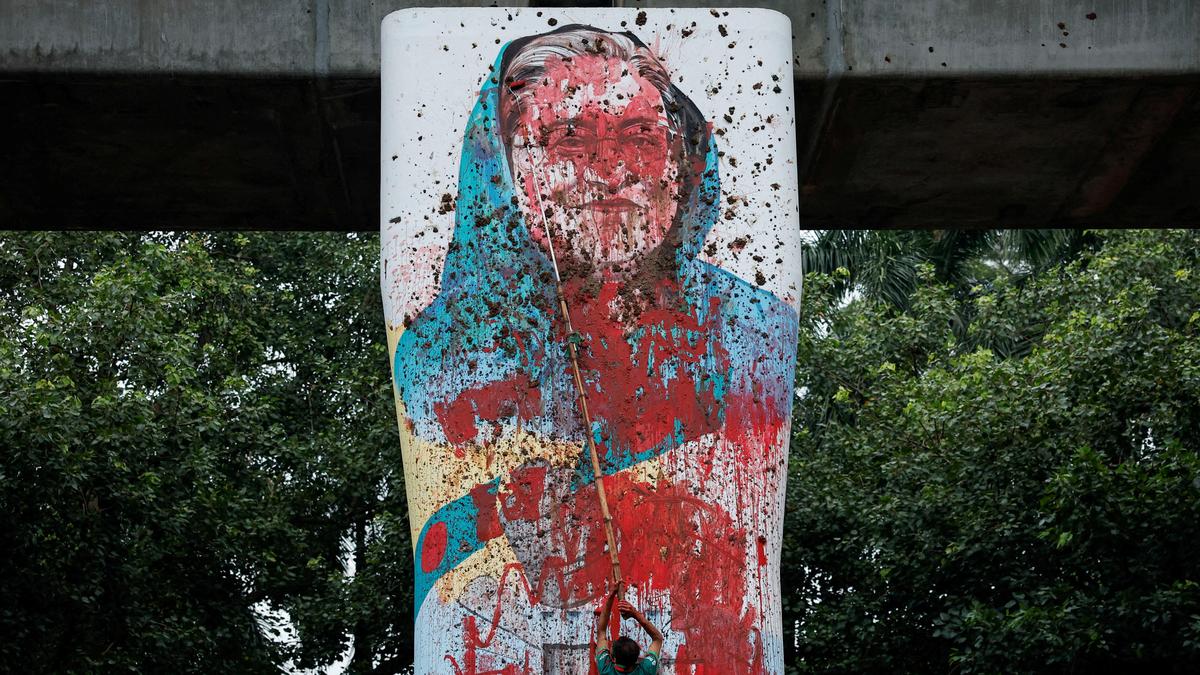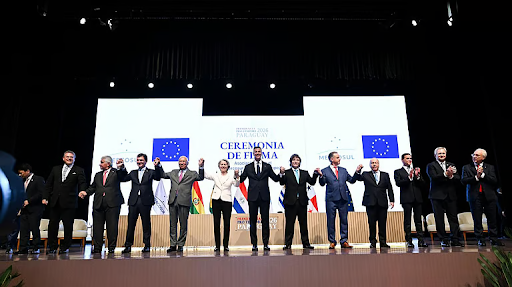



Bangladesh’s extradition request for Sheikh Hasina puts India in a tough diplomatic and legal spot. Under the 2013 treaty, Delhi must weigh bilateral ties, security concerns, and the political offence exception. India could refuse, delay, or offer conditional asylum, making its decision geopolitically significant.

Copyright infringement not intended
Picture Courtesy: THE HINDU
The interim government of Bangladesh has formally requested India to extradite former Prime Minister Sheikh Hasina.
Following a student-led mass uprising in August 2024, former Bangladesh Prime Minister Sheikh Hasina sought refuge in India.
The new interim government in Bangladesh has formally requested her extradition after an International Crimes Tribunal (ICT) sentenced her to death in absentia for "crimes against humanity."
The situation places India in a complex diplomatic position, testing legal frameworks and the strategic core of 'Neighbourhood First' policy.
India's extradition decision is governed by its domestic law, Extradition Act 1962, which supersedes the 2013 bilateral treaty with Bangladesh.
|
Provision |
India-Bangladesh Extradition Treaty (2013) |
Indian Extradition Act (1962) |
|
Core Principle |
Facilitates the surrender of fugitives wanted for offences punishable in both nations (Principle of Dual Criminality). |
Provides the overarching domestic legal structure for all extradition requests received by India. |
|
Political Offence Exception |
Article 6 allows refusal if the offence is of a "political nature." However, it excludes serious crimes like murder from this category. |
Section 31(1)(c) provides a strong basis for refusal, stating a fugitive shall not be surrendered if the offence is of a "political character." |
|
Death Penalty |
The treaty does not bar extradition for capital offences but operates on mutual understanding. |
India can deny extradition for fugitives facing the death penalty unless the requesting state guarantees the sentence won't be executed. |
|
Fair Trial Concerns |
Implicitly requires that the judicial process be fair. |
India can refuse requests if they stem from political persecution or if the individual may not receive a fair trial. |
India must weigh its legal obligations against its long-term strategic interests. The decision is not merely legal but deeply geopolitical.
Refuse Extradition (Legally Justified): Based on several provisions of the Indian Extradition Act, 1962.
Accede to the Request (Strategically Improbable): Honoring the treaty by extraditing a friendly, time-tested leader to face the death penalty is highly unlikely. Doing so would severely damage India's credibility as a reliable partner and could destabilize the region.
Strategic Deferral (Most Likely Path): This diplomatic middle ground involves delaying a final decision by engaging in a prolonged review of the request.
|
The "Golden Era" of India-Bangladesh Ties under Sheikh Hasina (2009-2024) Security Cooperation: Her government took action to dismantle anti-India insurgent camps on Bangladeshi soil, strengthening the security of India's Northeast. Economic Partnership: In FY 2023-24, the total bilateral trade has been reported as $14.01 billion. Connectivity Revolution: Several projects were implemented, including the Akhaura-Agartala Rail Link and the Maitree Super Thermal Power Plant, to boost regional integration. Historic Resolutions: Long-pending issues were resolved amicably, most notably the Land Boundary Agreement (2015) and the maritime boundary dispute in the Bay of Bengal. |
Strained Bilateral Relations: Refusing extradition could be viewed as a hostile act by the new government in Dhaka, potentially reversing decades of diplomatic gains.
Creating a Vacuum for China: Loss of trust might push Bangladesh toward China, an existing economic and defence partner. Beijing is engaging with the new administration, and an alienated Dhaka could grant China greater strategic access to the Bay of Bengal, jeopardizing India's maritime security.
Setback to 'Neighbourhood First' & 'Act East' Policy: A stable and cooperative Bangladesh is the linchpin for India's regional policies. An uncooperative neighbour could derail infrastructure projects and stall the economic development of Northeast.
India must balance legal duties, humanitarian values, and strategic needs. The best course is strategic patience and quiet diplomacy. Postponing a decision avoids an immediate diplomatic crisis and protects a key long-term ally.
Source: THE HINDU
|
PRACTICE QUESTION Q. India must balance legal obligations and strategic interests regarding Sheikh Hasina's extradition request, considering the impact on its 'Neighbourhood First' policy. 250 words |
The request is formally based on the India-Bangladesh Extradition Treaty, signed in 2013 and amended in 2016. The treaty facilitates the exchange of fugitives for offences punishable by at least one year of imprisonment in both nations, satisfying the 'dual criminality' principle.
Extraditing Sheikh Hasina would be strategically damaging for India for several reasons. Her 15-year tenure is considered a "golden era" for India-Bangladesh relations, marked by deep security cooperation against anti-India insurgents, booming trade, and resolved boundary disputes. Abandoning her, to face a death penalty, would undermine India's credibility and reliability as a partner in South Asia.
Refusing the request will likely strain relations with the new interim government in Dhaka, which may view it as an "unfriendly act." This could reverse years of diplomatic progress, create a hostile neighbour, and derail crucial connectivity projects under the 'Act East' policy.



© 2026 iasgyan. All right reserved